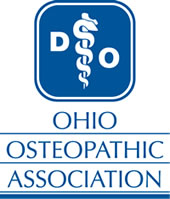New Law Takes Effect Next Week
[September 16, 2022]
Ohio HB 193, which requires that a prescriber issue an electronic prescription when prescribing a Schedule II controlled substance, takes effect Friday, September 23.
There are exceptions to the requirement. A prescriber may issue a written – rather than electronic – prescription for a Schedule II controlled substance only in the following circumstances:
- In the event of a temporary technical, electrical, or broadband failure.
When the prescription is issued for a nursing home resident or hospice care patient. - When the prescriber is employed by, or under contract with, the same entity that operates the pharmacy.
- When the prescriber determines that an electronic prescription cannot be issued in a timely manner and the patient’s medical condition is at risk.
- When the prescription is issued from a health care facility, which may include an emergency department, and the prescriber reasonably determines that an electronic prescription would be impractical for the patient or would cause delay that may adversely impact the patient’s medical condition.
- When the prescriber issues per year not more than 50 prescriptions for schedule II controlled substances.
- When the prescriber is a licensed veterinarian.
There is an additional temporary exemption for 12 months after the bill’s effective date (9/23/2022), during which a prescriber may issue a written prescription for a Schedule II controlled substance if the drug is to be dispensed by a pharmacist employed by, or under contract with, any state agency (for example, pharmacists working at state psychiatric hospitals).
For more information, see the Ohio Board of Pharmacy FAQ.



